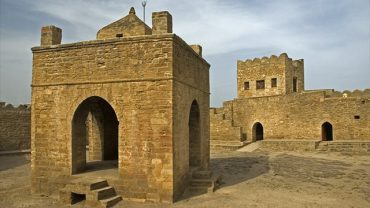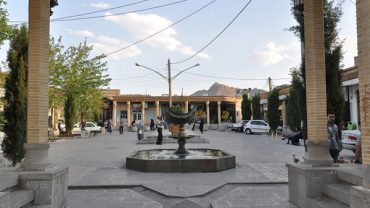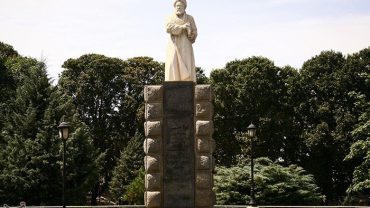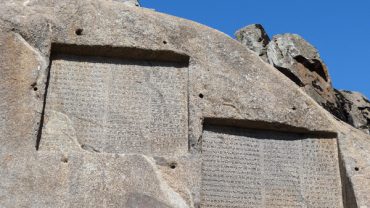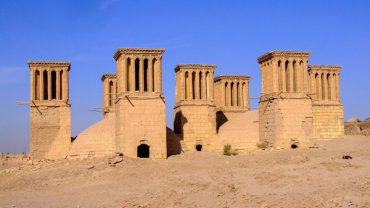- Isfahan
- 21 Dec 2021
Atashgah – Zoroastrian Fire Temple
Iran has many archaeological wonders to admire from ancient time. One of them is the Zoroastrian fire temple Atashgah in the big city Esfahan - Isfahan. It is well constructed and has its own charm, but cannot compete with other Iranian wonders which are notified on UNESCO's World Heritage list as Bam and its Cultural [...]
- Isfahan
- 21 Dec 2021
At the centre of the Armenian Quarter, a short walk from Vank Cathedral, this delightful square is a good place to sit and watch the world go by. Other than an arcade of ordinary shops propped up by brick pillars and an elaborate sundial, there's not much to see or do except sit on the [...]
- hamedan
- 21 Dec 2021
Tomb of Abu Ali Sina in Hamedan
The Tomb of Sheikh al-Rayees Abu Ali Sina, the famous Iranian philosopher, scientist, and physician titled also as The Eastern Genius (980–1037) and called Avicenna in the West, is situated in Bu Alī Sīnā square, Hamadan, Iran. Abu Ali al-Husayn ibn Abdullah ibn Sina, known as Ibn Sina, and in the West as Avicenna, was [...]
- 21 Dec 2021
HAMADAN GANJNAMEH INSCRIPTIONS
The Ganjnameh are set of cuneiform characters written in three languages (ancient Persian, Elamite, and Babylonian), set into a rockface on Mount Alvand, about 5 kilometers from modern-day Hamadan. They were first studied in detail by the French painter and archaeologist Eugene Flandin, who was accompanied by Pascal Coste. Following on their work, Sir Henry [...]
- 20 Dec 2021
Bam is situated in a desert environment on the southern edge of the Iranian high plateau. The origins of Bam can be traced back to the Achaemenid period (6th to 4th centuries BC). Its heyday was from the 7th to 11th centuries, being at the crossroads of important trade routes and known for the production [...]
- Other Attractions
- 20 Dec 2021
Saint Stepanos Monastery is the second important Armenian monastery in Iran after St. Thaddeus Monastery. This monument is located in East Azerbaijan Province, 16 kilometers west of Jolfa City and 3 kilometers from southern shore of Aras River in a place named "Qezel Vank" (Red Monastery). The monastery was built in 9th century AD, but [...]
- shiraz
- 20 Dec 2021
The house of Zaynat al-Milk or Zaynat al-Muluk is one of the historical and architectural monuments of the Qajar period, which lasted about 12 years. Most of the rooms in this wood house are decorated with pictures of animals, birds and flowers. This house is located at a distance from the alley of Qavam Garden, [...]
- Iran tourist attractions
- 20 Dec 2021
Rayen castle, or Arg-e Rayen is an adobe castle in Rayen town in Kerman, you can visit the medieval mud brick city of Rayen is similar to the Arg-e Bam. Rayen displays all the architectural elements of a deserted citadel. It appears extremely well preserved, considering the numerous natural disasters that have been destroying similar [...]
- Iran tourist attractions
- 20 Dec 2021
The Markar Museum is located in a building dating back more than eighty years with magnificent and unparalleled architecture. The brick building was used as the dormitory for the students of the Markar boarding school and its architecture allows for máximum use of sunlight thus conserving energy at the highest level. The complex uses various [...]
- Yazd
- 20 Dec 2021
Sar Yazd Castle (Qal’eh Sar Yazd in Persian) is a historical castle built during Sassanid Dynasty (the 3th_ 7th century) in Sar Yazd village, Mehriz county, Yazd Province, Iran. The castle has been one of the oldest and largest bank safe-deposit boxes in Iran and the world where cereals, money, gold and jewelry were kept [...]
